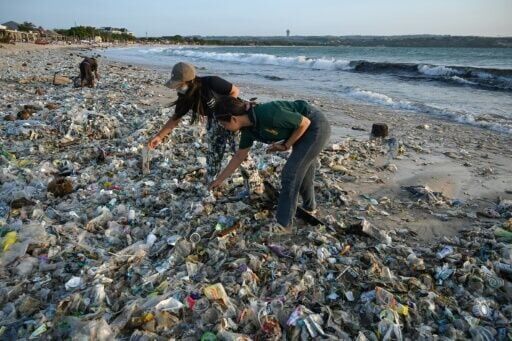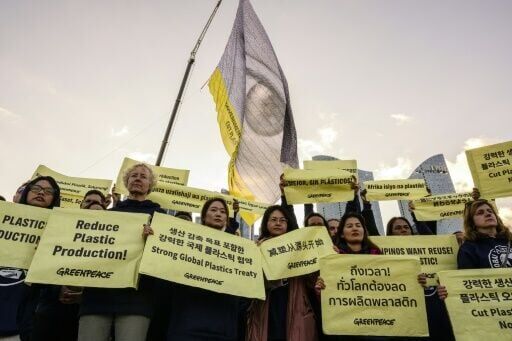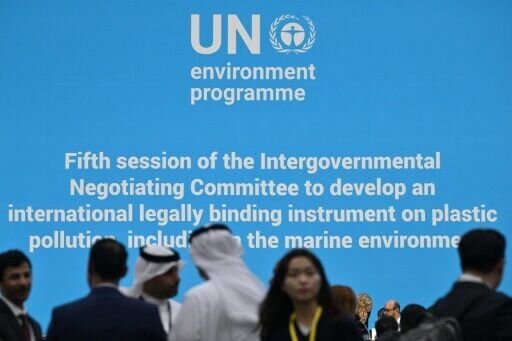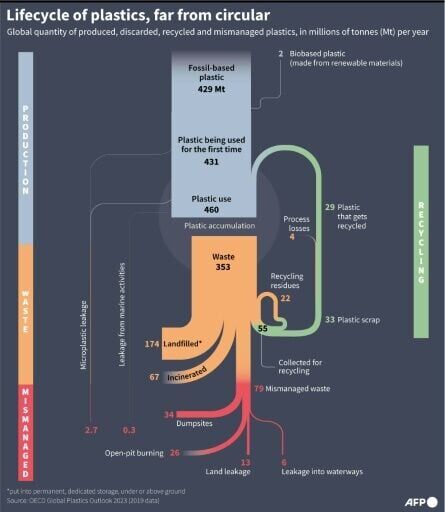Plastic pollution talks: the key sticking points
Divisions between countries have stalled negotiations on the world’s first treaty to tackle plastic pollution, after a terse week of talks in South Korea’s Busan.
Here are some of the sticking points that led to a decision early Monday to resume discussions at a later date after negotiators were unable to strike a deal:
– Production cuts –
The 2022 resolution that kicked off two years of negotiations called for a treaty that would “promote sustainable production and consumption of plastics”.
But what that means has proved a key point of disagreement.
Dozens of nations want the deal to mandate a reduction of new plastic production, and there have been calls to phase out “unnecessary” items such as some single-use plastics.
“Mopping the floor when the tap is open is useless,” said Anthony Agotha, the EU’s special envoy for climate and environment.
But others, led by some oil-producing states like Russia, Iran and Saudi Arabia, have pushed back against any binding reduction call.
“The objective of this treaty is to end plastic pollution, not plastic itself. Plastic has brought immense benefit to societies worldwide,” Kuwait’s delegate said Sunday.
– ‘Chemicals of concern’ –
An alliance led by Rwanda and Norway pushing for specific measures on production, the High Ambition Coalition (HAC), is also seeking controls on so-called chemicals of concern.
These are components of plastic that are known or feared to be harmful to human health.
Any agreement “must contain a clear, legally binding obligation to phase out the most harmful plastic products and chemicals of concern in plastics”, Mexican delegate Camila Zepeda said in the final plenary session, in a statement backed by nearly 100 countries.
Fiji’s representative had earlier warned there would be “no treaty without a provision on chemicals of concern”, calling it “a non-negotiable”.
But some countries have rejected any push to phase out or restrict the chemicals, pointing to existing international agreements and national regulations on toxins.
The Center for International Environmental Law (CIEL) said its analysis of a UN list of participants at Busan showed over 200 lobbyists from the fossil fuel and chemical industries were registered for the talks.
– Finance –
Implementing any treaty will cost money that developing countries say they simply do not have.
An article on financing in the latest draft agreement released on Sunday was full of conflicting possible options, reflecting deep disagreement on who will pay what, and how.
One focus of the talks has been creating a dedicated multilateral fund for the purpose — after the hard-fought battle at COP29 climate talks to extract more finance from developed countries.
But the details are proving complicated.
“As developing countries have repeatedly called for in the past few days, the instrument should respect national differences” and “reflect equity and inclusiveness,” China’s delegate said late Sunday.
– Globally binding? –
Will the treaty create overarching global rules that bind all nations to the same standards, or allow individual countries to set their own targets and goals?
This has been another sticking point, with the European Union initially warning that “a treaty in which each party would do only what they consider is necessary is not something we are ready to support”.
On the other side are nations who argue that differing levels of capacity and economic growth make common standards unreasonable.
“There shall not be any compliance regime,” reads language proposed during negotiations by Iran.
Instead, it has urged an “assessment committee” that would monitor progress but “in no way” examine compliance or implementation.
sah-kaf/pdw
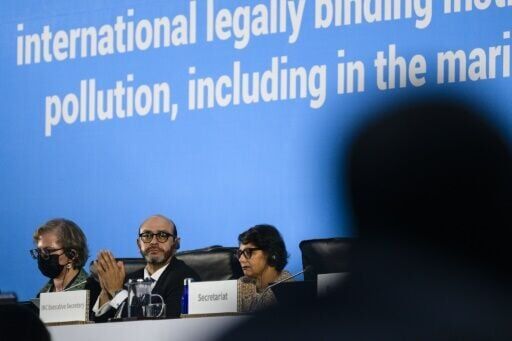
A week of difficult UN plastics talks failed to yield an agreement
-ANTHONY WALLACE

Enforcement and finance were two of the major obstacles to a deal
-ANTHONY WALLACE

